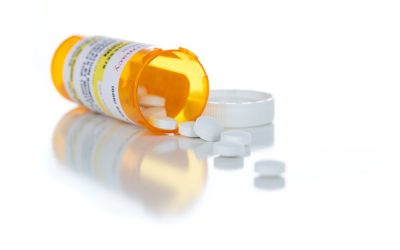Police begin investigating you for DUI the moment they pull you over, or even sooner. Likewise, anytime police respond to a traffic accident, they are always prepared to look for signs of potential intoxication. Understanding what the police look for—and how the case against you is built—can help you defend yourself.
At a Traffic Stop
Most DUIs begin with a traffic stop. What drivers don’t realize, however, is that police may already suspect you of DUI before they pull you over. All California law enforcement officers are trained to look for driving patterns that indicate intoxication. These patterns include:
- Driving too slowly
- Weaving
- Crossing the center line or straddling a lane
- Turning too wide
After police pull you over, they are looking for signs in your appearance and behavior: slurred speech, bloodshot eyes, the smell of alcohol or drugs, and difficulty focusing or answering questions. They will also shine a flashlight into your car, looking visually for any open containers or signs of drug use. This is not a “search” because they do not have to enter the car to do it.
If police have any reason to suspect DUI, they may ask you to:
- Take field sobriety tests (FSTs), which you can refuse
- Take a PAS breath test before they have arrested you, which you can refuse in most cases as long as you are over 21 and not already on DUI probation
Both of these tests are tools the officers use against you. The FSTs are designed in a way that makes it difficult to pass even if you are sober. However, if you fail, it will be used as evidence of your guilt. The PAS is more objective but also subject to error. It is rare that taking a PAS gets you out of being arrested, so it’s better not to take it if possible.
At a Car Accident
Officers also respond to traffic accidents looking for signs of intoxication. This is troubling because a person could appear intoxicated if they are shaken, scared, in shock, in pain, or suffering from an injury—especially head injuries. Officers have to balance the two priorities of helping those who are injured and investigating a possible crime. They often have to act in a rushed way, either because a victim urgently needs care or because of the pressure to clear the street for traffic.
At accident scenes, police can use all of the same methods described above. However, they are much more likely to rely on eyewitnesses, because there are usually at least two drivers involved, plus passengers and bystanders. Police may ask witnesses if they saw any signs of intoxication. A witness’s account about whether you appear intoxicated is subjective, but it may still be used as evidence.
How Police Questioning You About Your DUI
One of the greatest weapons police have in DUI investigation is you: the suspected driver. Police understand that people slip up, say too much, and accidentally incriminate themselves—or, alternately, that you try to cover up details and then get caught in a lie. They will ask you misleading questions to try to get you to make a mistake.
Many drivers don’t realize that police can begin questioning you immediately, without arresting you and without reading you your rights. Their initial approach when they pull you over may seem casual or even friendly, but they can use your words against you.
Police do not have to read you your rights until they arrest you—and even then, not until they are about to formally interrogate you. But you do have the “right to remain silent” from the very beginning. The best thing you can do when police first start asking questions is be polite, be respectful and decline to answer questions. You are allowed to say, “I’d rather not answer any questions.” You do not have to give a reason.
The Chemical Tests
After your arrest, you will be asked to take either a breath test, blood test or urine test. Now that you have been arrested, taking the test is mandatory and there are penalties for refusal. Even if you took the PAS breath test earlier, you are still required to take a second test now.
You are allowed to request one specific type of test. If it’s available, officers must give it to you. When possible, a urine test is the least invasive option and it is also the one least likely to hold up as strong evidence against you. If it is not, a blood test offers some advantages over a breath test:
- Police will not know your blood alcohol level immediately, so they cannot write it on their arrest report
- You have the right to request part of the blood sample to have it independently re-tested later
No matter which test you are given, however, it is not 100% reliable and police often make mistakes in how it is administered. The best thing to do is to consent to the test, cooperate, and fight it later. This will help you avoid a much longer license suspension and give you the opportunity to challenge the validity of the test results.
Defending Your DUI Case
Every step of the police work involved in your DUI case is one more opportunity to find a weakness or irregularity in the evidence against you. Many DUI cases are won by either getting a key piece of evidence suppressed, or showing that the traffic stop was illegal in the first place. There is no such thing as an unwinnable DUI.
Have you been charged with DUI? We can connect you with an experienced Los Angeles DUI lawyer and get you a FREE consultation. Fill out the form to the right or call (310) 896-2724 and get your free consultation today.







